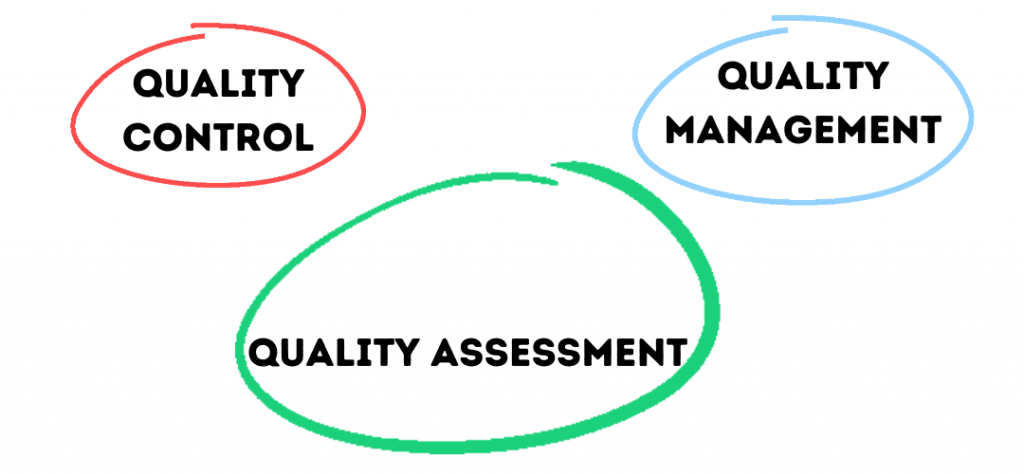What are the basics of defining product consistency, maintaining regulatory compliance, and ensuring there is continuous improvement in the production in the manufacturing industry?
The answers are Quality control, Quality Management, and Quality Assessment.
Did you notice we used and, not or for the above answer?
What?
Have you been, like the majority of us living under the impression that they are all same?
If yes, then you have been highly mistaken. QA, QC, QM are three different aspects of the manufacturing industry. Furthermore, they all contribute to production consistency and maintaining compliance.
Used interchangeably, these three terms help a manufacturing business stay compliant with the standards and protocols.
In today’s blog post we are going to shed light on what does Quality control, Quality Assessment, and Quality Management means. We will also discuss what are their function and their importance in manufacturing.
QA and QM, unlike the popular belief of them holding inherent properties, are complimentary of one another and significantly contribute to creating an overall quality strategy in manufacturing. While QM is rather a relatively broader approach, QA basically ensures that the standardized practices are being implemented so that the product thus produced is of the desired quality. QM, on the other hand, aims at mitigating the errors, deficiencies. Thus it ensures that the manufactured product is produced by following the set of standards and protocols. It further guarantees that the product meets all the regulatory compliance guidelines.
Furthermore, it is important to note that quality assurance includes activities that intend to prevent the manufacturing of non-conforming and hazardous products. It functions independent of manufacturing and operation. It aims at eliminating the mitigating the possibility of any safety or health risks by creating, revision, and implementing defined strategies to ensure supreme quality products that meet predefined industry standards.
The process involves:
- Auditing
- Corrective and preventive actions
- Investigation and disposition of nonconforming materials
- Quality record control and system management review
- Device history and master records
Moving on to QC, it ensures that the product thus produced meets all the standards and norms laid down by the compliant regulatory bodies. Furthermore, it inspects and tests all the processes that have been involved in the manufacturing of the product. This is thus done to ensure conformance and remove the product that does not comply. Thus the goal is to ensure safe and healthy consumption by the end-users. Furthermore, for inspecting and testing the products, they make use of the standards set by QA. Hence, quality control professionals are responsible for ensuring that the regulatory protocols and laws by the legislators are enforced and duly followed.
Some of the responsibilities of quality control professionals include
- Inspecting materials and labels
- Ensuring proper material handling and storage
- Conducting and in-process product inspection and testing
- Monitoring for environmental factors
- Inspecting final products
Your manufacturing business is severely impacted by all these three aspects. Hence it is important to have a robust ERP system in place. This will thus ensure the effective management of the three so that you deliver quality products to your customers, maximize productivity and enhance profitability.
Looking for an ERP implementation partner?
Tayana Solutions is here to help you.
Contact us, today!

Vijay comes with a vast experience in ERP and enterprise solutions space with about 20 years of experience in various packaged application like Acumatica, SAP, Orion, Salesforce.com, SugarCRM and, SalesLogix.

